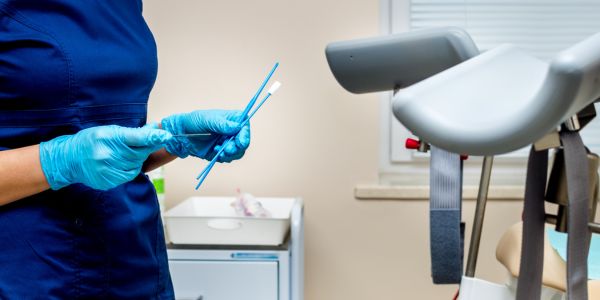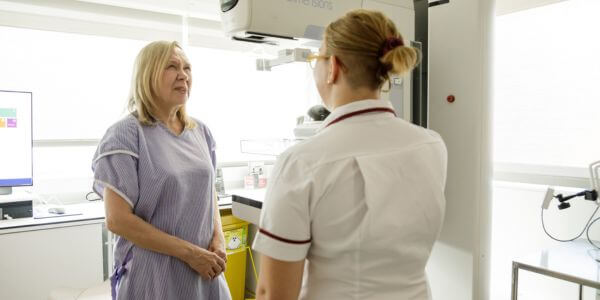Health Hub
Preventive health screenings for women

Maintaining good health requires regular check-ups and screenings, regardless of age. Preventative health screenings are crucial for early detection and management of diseases, helping to maintain women’s health and well-being throughout their lives.
While many of these screenings may not apply to some transgender women, only those with female anatomy, some are still worth considering, for example, blood pressure, mental health and colorectal screenings.
Below is a comprehensive list of recommended preventative health screenings for women as well as some optional screenings, but it’s important to consult with a healthcare provider for personalised advice.
These preventative measures are crucial for early detection of potential health issues, allowing for timely intervention and management. Screening recommendations can vary based on age, family history, and personal health history. By regularly undergoing these screenings, individuals can take proactive steps towards preserving their health and well-being, ensuring a better quality of life.
General screenings for all ages
Blood pressure screening
This is conducted at least every two years if readings are under 120/80 mm Hg. A healthcare provider measures your blood pressure using a sphygmomanometer (blood pressure cuff) during routine visits.

Body Mass Index (BMI)
BMI is calculated by dividing your weight in kilograms by your height in metres squared during routine health examinations. Conducted during routine health examinations to monitor weight status.
READ: Weight Loss Surgery: What are the Options?
Vision and hearing
Regular check-ups, especially if symptoms occur.
Reproductive and sexual health
Pap smear (cervical cancer screening)
Starting at age 21, every three years until age 65, unless otherwise advised by a healthcare provider. They will collect cells from your cervix during a pelvic exam to test for cervical cancer and precancerous conditions.
READ: Smear test rates plunge: why, and what can be done about it?

Human papillomavirus (HPV) testing
Starting at age 30, combined with a Pap smear every five years until age 65, or as recommended. Similar to a Pap smear, cells from your cervix are collected and tested specifically for HPV, which can lead to cervical cancer.
Breast cancer screening (mammograms)
Generally recommended every two years for women aged 50 to 74, but starting earlier depending on risk factors.
READ: 10 questions about breast cancer screening, answered
READ: A Guide to Mammogram Screening

Sexually transmitted infections (STIs)
Regular screening for sexually active women, especially for those under 25 or with new/multiple partners. Samples are collected, either through blood tests, urine tests, or swabs from the genital area, and tested for various STIs.
Cardiovascular health
Cholesterol screening
Blood tests measure cholesterol and triglyceride levels to assess heart disease risk starting at age 20. They are performed every 4-6 years, more frequently if risk factors are present.
Diabetes screening
For adults with BMI ≥25 (and additional risk factors), screening for type 2 diabetes is recommended. A blood test measures your blood sugar level to screen for diabetes, often requiring fasting beforehand.
READ: Enhanced Heart Screening – “Don’t let heart health worries hold you back; get the answers you need quickly for real peace of mind.”
Cancer screenings
Skin cancer
Regular self-exams and professional skin examinations as part of routine health check-ups. A healthcare provider examines your skin for moles, birthmarks, or other marks that are unusual in colour, size, shape, or texture.
Colorectal cancer
Screening from age 45 to 75 using faecal occult blood testing, sigmoidoscopy, or colonoscopy, depending on the method chosen and frequency.
READ: FIT testing – advanced screening for bowel cancer
READ: A guide to rectal cancer
Mental health
Mental health is a crucial aspect of overall well-being, yet its challenges are often less visible than physical health issues. Unlike many physical conditions, mental health problems don’t always have obvious symptoms or signs that can be easily observed or measured. This invisibility can make mental health issues particularly challenging to identify and treat.
Regular mental health screenings, such as those for depression, are essential components of healthcare, especially during significant life changes or periods of increased vulnerability, such as pregnancy and the postpartum period.
Depression screening
Regular screenings during routine health exams, especially during pregnancy and postpartum. This typically involves a questionnaire or a discussion with your healthcare provider about symptoms of depression.
READ: How to deal with stress

Immunisations
- Flu Vaccine: Annually for all ages.
- Tetanus-Diphtheria-Pertussis (Tdap) Vaccine: Every 10 years.
- Human Papillomavirus (HPV) Vaccine: For women up to age 26.
- Shingles Vaccine: Recommended for adults aged 50 and older.
- Pneumococcal Vaccines: For adults 65 years or older and for those with specific health conditions.
Additional Considerations
Hepatitis C screening
At least once for adults born between 1945 and 1965 and others at risk. This is a blood test.
HIV screening
At least once for everyone aged 15 to 65, and more frequently for those at high risk. This is a blood or saliva test.
Additional Screenings
While the core set of health screenings for women focuses on the most common and impactful areas of health, there are additional screenings that, while not essential for every woman, are worth noting due to their potential benefits for specific groups. These screenings target conditions that may not affect every woman but pose significant risks for those with particular lifestyles, family histories, or health conditions.
Lung cancer screening
For women aged 50-80 who have a 20-pack-year smoking history and currently smoke or have quit within the past 15 years, annual screening with low-dose computed tomography (LDCT) is recommended.
Thyroid function test
Though not universally recommended, it may be advised for women with symptoms of thyroid dysfunction, a family history of thyroid disease, or other risk factors. This is a blood test.
Hepatitis B screening
For pregnant women at their first prenatal visit to prevent mother-to-child transmission. This is a blood test.
Genetic testing and counselling
For women with a family history of breast, ovarian, tubal, or peritoneal cancer, testing for BRCA1 and BRCA2 mutations may be recommended. This involves discussing your family history and possibly undergoing genetic tests to assess your risk for certain diseases.
READ: Expert Interview: Genetic Testing for Cancer with Anjana Kulkarni
Anaemia screening
Recommended for pregnant women and others at risk due to nutritional deficiencies or chronic conditions. This is a blood test.
Chlamydia and gonorrhoea
Regular screening for sexually active women under 25 years of age, or older women with new or multiple sex partners, or a sex partner who has a sexually transmitted infection. This is a urine test.
Lifestyle and chronic conditions
Obesity screening and counselling
Regular BMI calculation and counselling on healthy eating and physical activity for maintaining a healthy weight.
Skin health
Counselling on skin protection to reduce the risk of skin cancer, including the use of sunscreen and avoidance of tanning beds.
Alcohol misuse screening and counselling
To identify unhealthy alcohol use and provide persons engaged in risky or hazardous drinking with brief behavioural counselling interventions.

Tobacco use screening
For all women, including pregnant women, and interventions for tobacco cessation for those who use tobacco products.
Dietary counselling
For women with cardiovascular disease risk factors, including those with obesity, hypertension, dyslipidemia, or diabetes, to adopt healthy eating patterns.
Age-specific considerations
Preconception care
Counselling on genetic screening, folic acid supplements, and other health factors for women planning to become pregnant.
Postmenopausal hormone therapy counselling
Discussing the risks and benefits of symptom management during menopause.
Bone density screening (osteoporosis)
Recommended for women aged 65 and older, or younger women with risk factors. This is done by a type of X-ray that measures bone mineral density to assess the risk of osteoporosis.
READ: Essential Health Checks For The Over-50s
READ: Bone density scan (DEXA scan) Patient Information
Mental health and substance use
Substance use screening
Assessing the use of illicit drugs and the misuse of prescription drugs for all adults, including pregnant women.
Intimate Partner Violence Screening: For all women, especially during pregnancy, to identify and provide or refer to appropriate interventions.
Vaccinations
Hepatitis A vaccine
For women at risk due to travel, certain medical conditions, or lifestyle factors.
Meningococcal vaccine
For individuals at risk due to certain medical conditions or who are travelling to countries where meningitis is common.
An individual approach
Beyond the universal screenings lie additional, specific tests that cater to unique vulnerabilities and predispositions, underscoring the critical need for personalised healthcare strategies. This tailored approach not only enhances the efficacy of preventative measures but also empowers women to take proactive steps towards their health based on informed choices.
By embracing the additional, specific screenings tailored to personal health narratives and leveraging advancements in medical science, we can aspire to a future where preventative care is not just a general guideline but a personalised health blueprint for every woman.
Article Sections
Latest Hospital News
Should you wish to speak to our press team, please visit Press Enquiries




